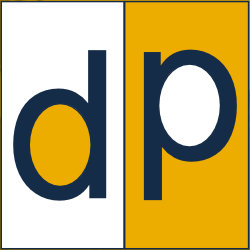Making Custom, Common: The Answer is Digital - Part II
In the first part of this series we had a chance to get insights from Brent Davison, president of Sculpt Garage. Brent helped us understand some of the challenges manufacturers of custom-crafted textile products face. He also explained a few of the reasons that he and other business leaders are looking to implement digital best practices to address these challenges.
In this final segment of the interview, Brent’s shares his vision on how he plans to integrate digital technologies includes 3D scanning, 3D CAD and digital patterning into his current process. We’ll also look at the specific benefits that he sees for both his business and his clients.
How do you see digital best practices helping you reach your goals?
The transition to digital is a big part of our plans to streamline the process. One interesting thing is that it didn’t take us long to settled on a workable process improvement plan once we met with the experts at ExactFlat.
Step 1. Consultation
We’ll start as we’ve always done, by listening to the client to get a feel for their needs. We use the consulting approach to get beyond the typical “can you fix this?” question and really dig down to make sure we’re aligned on a vision for something special.
Step 2. Concepts
We’re still a pen and paper company when it comes to concepts. We’ll do a bunch of sketches and then review those with the client to make sure everyone is on the same page. Once we have the approvals, we start the production steps.
Once the design starts to take shape renderings are used to help make sure everyone from the client to the shop floor are on the same page. Understanding the design at this level early in the process eliminates the costs from miscommunication and rework that used to creep into projects.
Step 3. 3D Design and Validation
The new step will be to leverage the drawings and 3D scanning technology to develop a 3D model for the project. We’ll be able to use the model to work out the details of the project in a fraction of the time it takes today.
Step 4. Digital Patterning
The final improvement is seamlessly converting the 3D model into precise, cutter-ready 2D pattern pieces. This is something that currently takes days of effort. From what we’ve seen so far, we should be able to reduce this to just a few mouse clicks. That’s huge for us.
What do you see as the key benefits of transitioning to digital?
Basically, we’re hitting all our goals with this change. We’re getting more exciting designs, faster. If that was all we got we’d be happy. But there’s so much more. The sculpted, organic shapes we create are quite complex, and the quality materials we use can be expensive. There's really no room for error. We’re still early in the process but from what we’ve seen so far, we’re convinced that the changes will address our and time and cost control challenges. We’re expecting to take days, if not weeks’ worth of re-design, sample making and fit testing out of the process. The move to digital is a win-win for us and our clients.
About the partner
Sculpt Garage is a small independent shop specializing in full custom automotive interiors. The Texas-based company was founded by Brent Davison, a design and fabrication specialist. Brent enjoys problem solving on vehicle designs and sees every project as an opportunity to build something that has never been done before.










